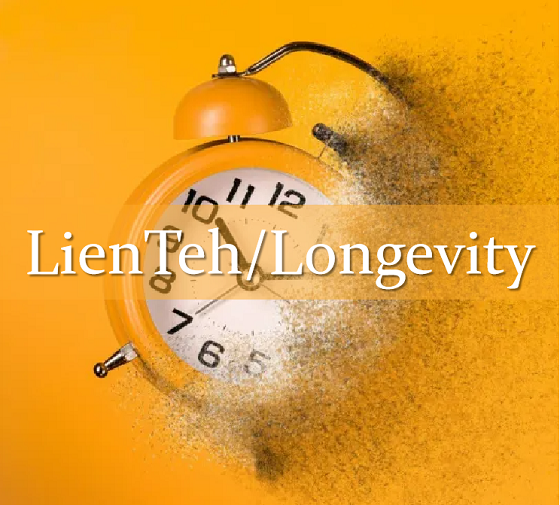
The main targeted therapies for Acute Myeloid Leukemia (AML) include:
For AML with FLT3 mutations, such as midostaurin, gilteritinib, etc. These target the FLT3 tyrosine kinase.
On April 28, 2017, the U.S. Food and Drug Administration approved midostaurin (RYDAPT, Novartis Pharmaceuticals Corp.) for the treatment of adult patients with newly diagnosed acute myeloid leukemia (AML) who are FLT3 mutation-positive (FLT3+), as detected by an FDA-approved test, in combination with standard cytarabine and daunorubicin induction and cytarabine consolidation.
| Approval Status | https://www.fda.gov/drugs/resources-information-approved-drugs/midostaurin |
| Instructions for use:dosing, indications, interactions...etc. | https://reference.medscape.com/drug/rydapt-midostaurin-1000156 |
| Stage: clinical development | https://www.sciencedirect.com/topics/neuroscience/midostaurin |
TOKYO, September 21, 2018 -Astellas Pharma Inc. (TSE: 4503, President and CEO: Kenji Yasukawa, Ph.D., “Astellas” ) today announced that XOSPATA® Tablets 40 mg (generic name: gilteritinib), a FLT3 (FMS-like tyrosine kinase 3) inhibitor received manufacturing and marketing approval for the treatment of FLT3 mutation-positive relapsed or refractory acute myeloid leukemia (AML) in Japan.
| Approval Status | https://www.astellas.com/en/news/14271 |
| Instructions for use:dosing, indications, interactions...etc. | https://reference.medscape.com/drug/xospata-gilteritinib-1000271 |
| Stage: clinical development | https://www.sciencedirect.com/topics/medicine-and-dentistry/gilteritinib |
Tokyo, Munich and Basking Ridge, NJ – (June 18, 2019) – Daiichi Sankyo Company, Limited (hereafter, Daiichi Sankyo) announced today that the Ministry of Health, Labor and Welfare (MHLW) of Japan has approved VANFLYTA® (quizartinib), an oral FLT3 inhibitor, for the treatment of adult patients with relapsed/refractory FLT3-ITD acute myeloid leukemia (AML), as detected by an MHLW-approved test.
| Approval Status | https://daiichisankyo.us/press-releases/-/article/364091/10393116 |
| Instructions for use:dosing, indications, interactions...etc. | https://reference.medscape.com/drug/quizartinib-1000313 |
| Stage: clinical development | https://www.sciencedirect.com/topics/medicine-and-dentistry/quizartinib |
For AML with IDH1/2 mutations, such as enasidenib, ivosidenib, etc. These target the mutant IDH1/2 enzymes.
On August 1, 2017, the U.S. Food and Drug Administration granted regular approval to enasidenib (IDHIFA, Celgene Corp.) for the treatment of adult patients with relapsed or refractory acute myeloid leukemia with an isocitrate dehydrogenase-2 (IDH2) mutation as detected by an FDA-approved test.
| Approval Status | https://www.fda.gov/drugs/resources-information-approved-drugs/fda-granted-regular-approval-enasidenib-treatment-relapsed-or-refractory-aml |
| Instructions for use:dosing, indications, interactions...etc. | https://reference.medscape.com/drug/idhifa-enasidenib-1000160 |
| Stage: clinical development | https://www.sciencedirect.com/topics/medicine-and-dentistry/enasidenib |
On May 25, 2022, the Food and Drug Administration approved ivosidenib (Tibsovo, Servier Pharmaceuticals LLC) in combination with azacitidine (azacitidine for injection) for newly diagnosed acute myeloid leukemia (AML) with a susceptible IDH1 mutation, as detected by an FDA-approved test in adults 75 years or older, or who have comorbidities that preclude use of intensive induction chemotherapy.
| Approval Status | https://www.fda.gov/drugs/resources-information-approved-drugs/fda-approves-ivosidenib-combination-azacitidine-newly-diagnosed-acute-myeloid-leukemia |
| Instructions for use:dosing, indications, interactions...etc. | https://reference.medscape.com/drug/tibsovo-ivosidenib-1000240 |
| Stage: clinical development | https://www.sciencedirect.com/topics/medicine-and-dentistry/ivosidenib |
On December 1, 2022, the Food and Drug Administration (FDA) approved olutasidenib (Rezlidhia) capsules for adult patients with relapsed or refractory acute myeloid leukemia (AML) with a susceptible IDH1 mutation as detected by an FDA-approved test.
| Approval Status | https://www.fda.gov/drugs/resources-information-approved-drugs/fda-approves-olutasidenib-relapsed-or-refractory-acute-myeloid-leukemia-susceptible-idh1-mutation |
| Instructions for use:dosing, indications, interactions...etc. | https://reference.medscape.com/drug/rezlidhia-olutasidenib-4000334 |
| Stage: clinical development | https://www.sciencedirect.com/search?qs=Olutasidenib |
Such as venetoclax. These target the BCL-2 protein and help restore apoptosis in cancer cells.
On October 16, 2020, the Food and Drug Administration granted regular approval to venetoclax (VENCLEXTA ®, AbbVie Inc. and Genentech Inc.) in combination with azacitidine, decitabine, or low-dose cytarabine (LDAC) for newly-diagnosed acute myeloid leukemia (AML) in adults 75 years or older, or who have comorbidities precluding intensive induction chemotherapy.
| Approval Status | https://www.fda.gov/drugs/resources-information-approved-drugs/fda-grants-regular-approval-venetoclax-combination-untreated-acute-myeloid-leukemia |
| Instructions for use:dosing, indications, interactions...etc. | https://reference.medscape.com/drug/venclexta-venetoclax-1000078 |
| Stage: clinical development | https://www.sciencedirect.com/topics/medicine-and-dentistry/venetoclax |
Such as gemtuzumab ozogamicin. These target surface proteins on AML blasts and deliver chemotherapy selectively to the cells.
On September 1, 2017, the U.S. Food and Drug Administration approved gemtuzumab ozogamicin (Mylotarg, Pfizer Inc.) for the treatment of newly-diagnosed CD33-positive acute myeloid leukemia (AML) in adults and for treatment of relapsed or refractory CD33-positive AML in adults and in pediatric patients 2 years and older. Gemtuzumab ozogamicin may be used in combination with daunorubicin and cytarabine for adults with newly-diagnosed AML, or as a stand-alone treatment for certain adult and pediatric patients.
| Approval Status | https://www.fda.gov/drugs/resources-information-approved-drugs/fda-approves-gemtuzumab-ozogamicin-cd33-positive-aml |
| Instructions for use:dosing, indications, interactions...etc. | https://reference.medscape.com/drug/mylotarg-gemtuzumab-1000186 |
| Stage: clinical development | https://www.sciencedirect.com/topics/medicine-and-dentistry/gemtuzumab-ozogamicin |
Hedgehog pathway inhibitors target the Hedgehog signaling pathway, blocking the activities of the Hedgehog-ligand cell surface receptors.
On November 21, 2018, the Food and Drug Administration approved glasdegib (DAURISMO, Pfizer Labs) in combination with low-dose cytarabine (LDAC), for newly-diagnosed acute myeloid leukemia (AML) in patients who are 75 years old or older or who have comorbidities that preclude intensive induction chemotherapy.
| Approval Status | https://www.fda.gov/drugs/fda-approves-glasdegib-aml-adults-age-75-or-older-or-who-have-comorbidities |
| Instructions for use:dosing, indications, interactions...etc. | https://reference.medscape.com/drug/daurismo-glasdegib-1000274 |
| Stage: clinical development | https://www.sciencedirect.com/topics/medicine-and-dentistry/glasdegib |
Fibroblast growth factor receptor (FGFR) inhibitors are drugs used for treating cancer that originates in the skin or in tissues that line or cover internal organs (carcinoma).
On August 26, 2022, the Food and Drug Administration approved pemigatinib (Pemazyre, Incyte Corporation) for adults with relapsed or refractory myeloid/lymphoid neoplasms (MLNs) with fibroblast growth factor receptor 1 (FGFR1) rearrangement.
| Approval Status | https://www.fda.gov/drugs/resources-information-approved-drugs/fda-approves-pemigatinib-relapsed-or-refractory-myeloidlymphoid-neoplasms-fgfr1-rearrangement |
| Instructions for use:dosing, indications, interactions...etc. | https://reference.medscape.com/drug/pemazyre-pemigatinib-4000043 |
| Stage: clinical development | https://www.sciencedirect.com/topics/medicine-and-dentistry/pemigatinib |
Others are being paired with therapeutic agents and Meds in the most promising clinical studies.
Such as midostaurin. These target multiple kinases involved in proliferation and survival of AML blasts.
For AML with MDM2 amplification, such as idasanutlin. These target the MDM2-p53 interaction.
Such as tagraxofusp. These target the IL-3 receptor CD123 which is overexpressed in AML blasts.
Such as pinometostat. These target the DOT1L histone methyltransferase enzyme.
Such as azacitidine and decitabine. These target epigenetic changes and hypomethylate DNA to re-express tumor suppressor genes.
Cytarabine, anthracyclines, etoposide, etc. Conventional chemotherapy continues to play a role in AML treatment, often combined with targeted agents.
Prev:4 targeted therapies for Bile Duct Cancer(Cholangiocarcinoma)
Next:This is the last article